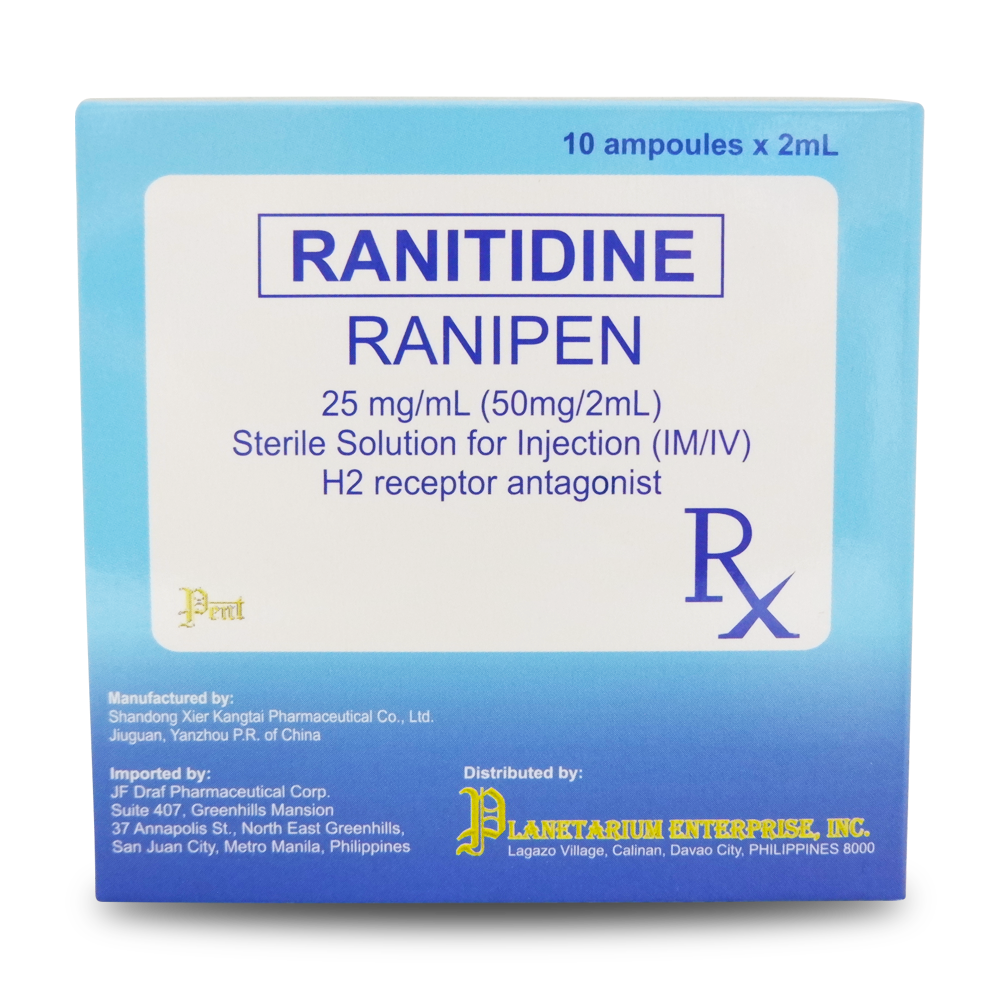
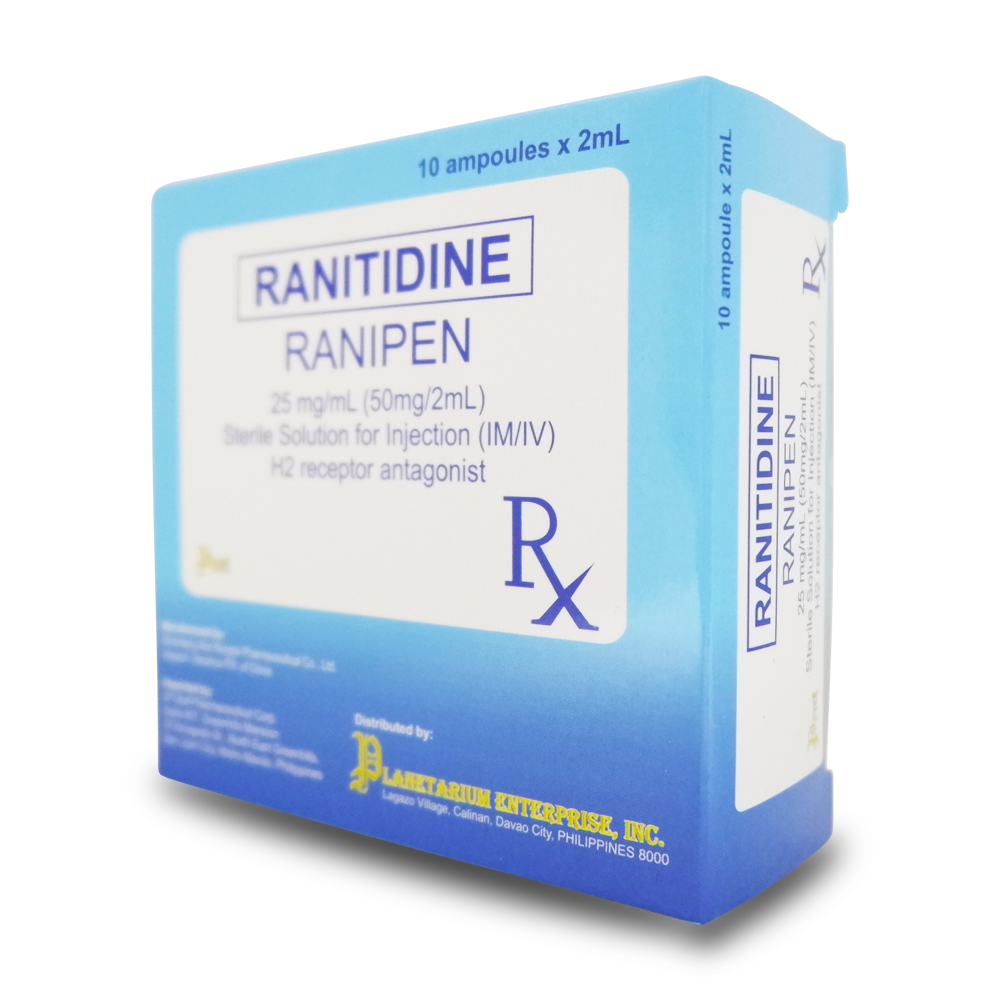
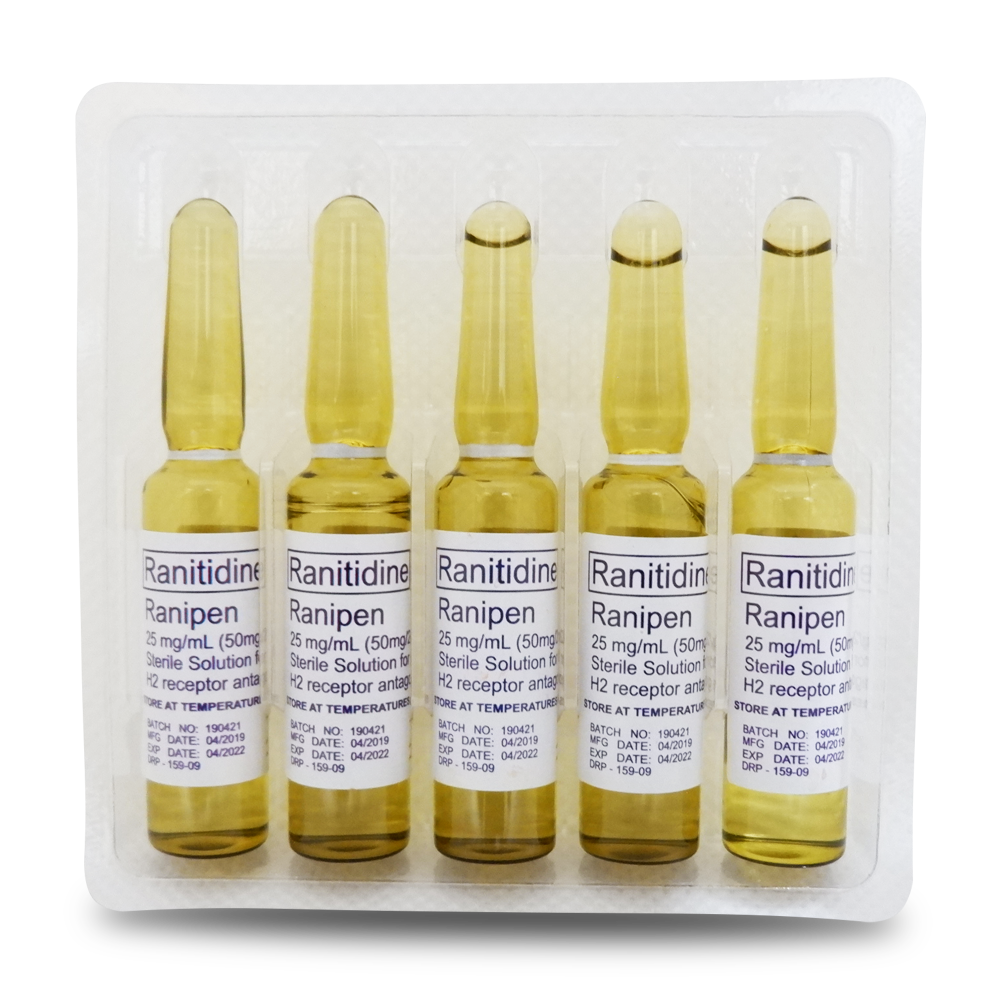
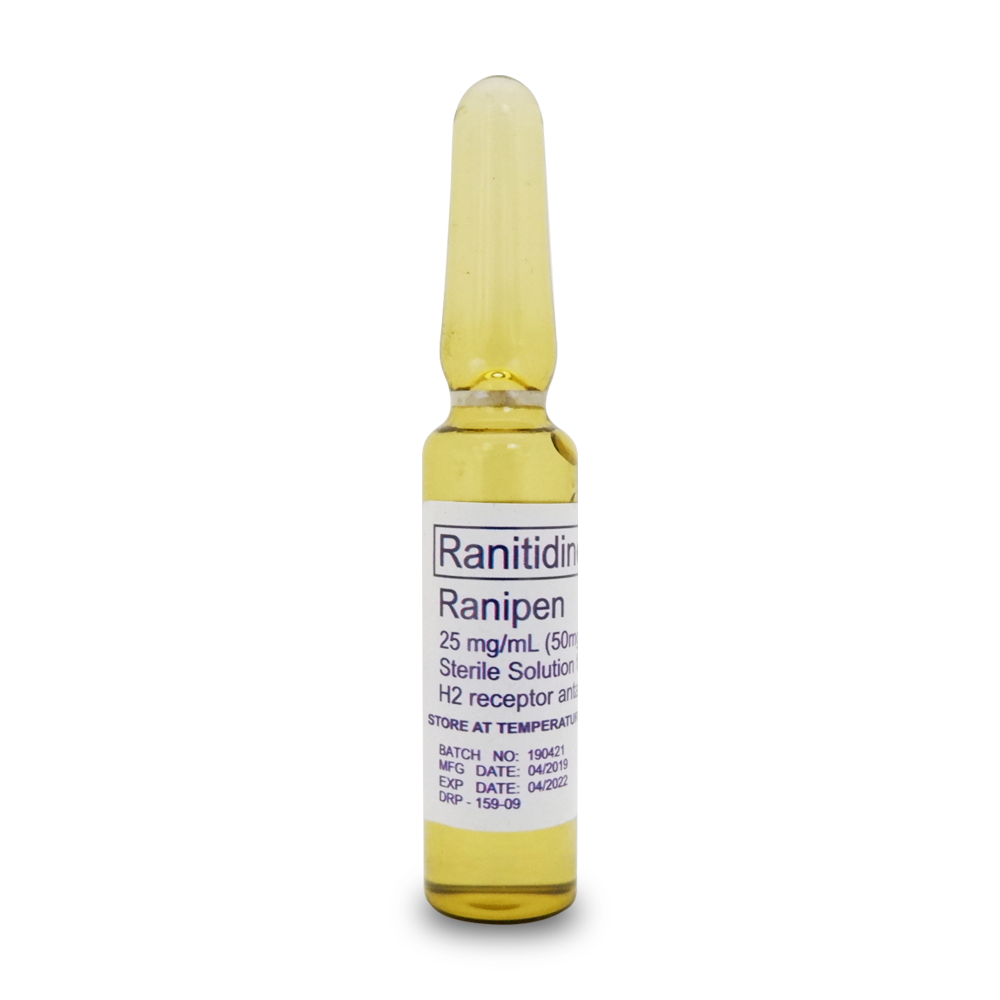
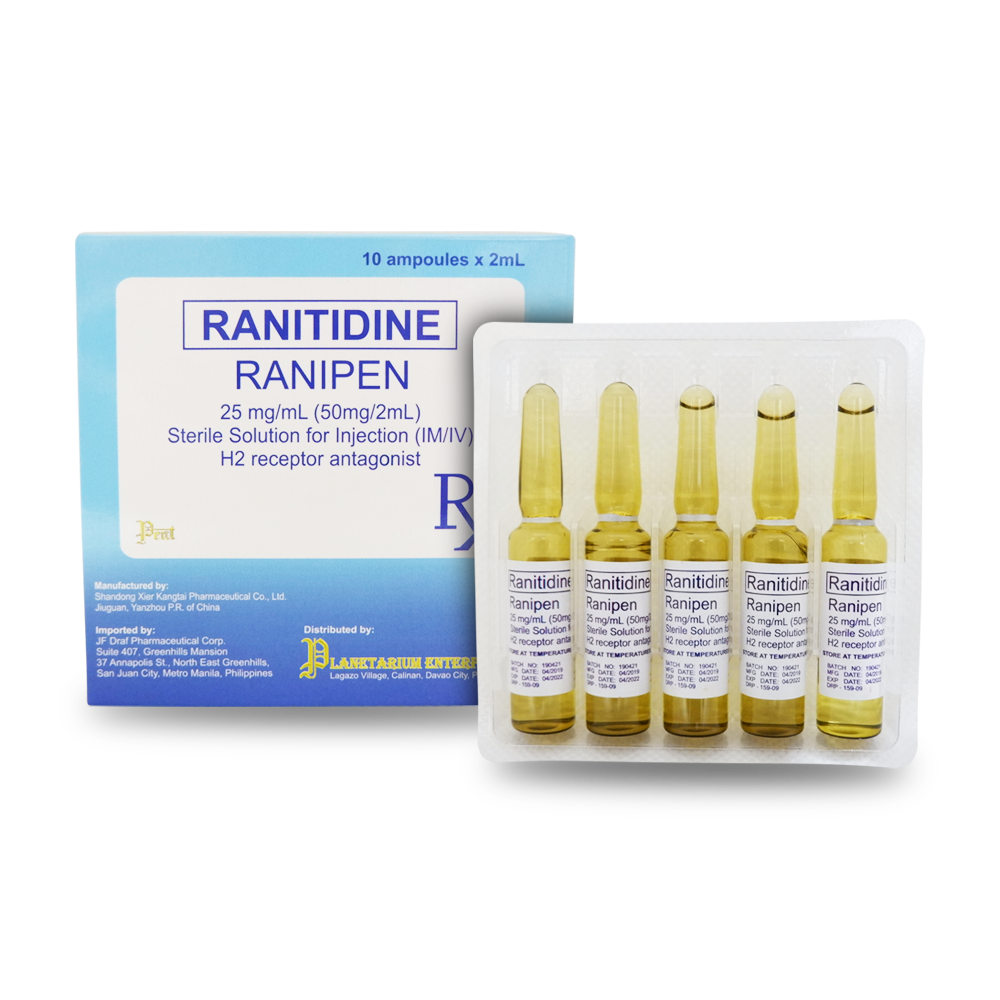
Generic Name: RANITIDINE
Ranipen
25 mg/mL (50mg/2ml) Solution for Injection (IM/IV)
H2 RECEPTOR ANTAGONIST
Formulation:
Each ml of aqueous solution contains 25mg ranitidine (as hydrochloride).
Indications:
Ranitidine is indicated in the treatment of benign gastric ulcer, doudenal ulcer, and used in condition where inhibition of gastric acid secretion may be beneficial.
Pharmacokinetics:
Ranitidine is rapidly absorbed following intramuscular injection and has a bioavailability of about 90 to 100%. The elimination half-life from plasma is around 2 to 3 hours and ranitidine is weakly bound, about 15%, to plasma proteins.
A small proportion of ranitidine is metabolized in the liver to the N-oxide, the S-oxide, and desmethyl-ranitidine; the N-oxide is the major metabolite but account for only about 4% of a dose. Approximately 70% of an intravenous dose is excreted unchanged in the urine in 24 hours; there is some excretion in the faeces. Clerance is markedly reduced in severe renal failure. Ranitidine crosses the placental barrier and is excreted into breast milk. It does not readily cross the blood-brain barrier but adverse effects on the central nervous system have been reported.
Adverse Effects:
Ranitidine has little or no anti-androgenic effect, although there have been isolated reports of gynaecomastia and impotence.
Central Nervous System:
Adverse neurological effects including confusion, loss of colour vision, aggressiveness, somnolence, lethargy, disorientation, depression, hallucinations and severe headache.
Cardiovasular:
Bradycardia, atrioventricular block, and cardiac arrest have been reported rarely.
Gastrointestinal :
Constipation, diarrhea, nausea/vomitting, abdominal discomfort.
Hematological :
Rare cases of agranulocytosis, panacytopenia.
lntegumentary :
Rash, including rare cases of erythema multiforme, alopecia.
Contraindications:
Ranitidine is contraindicated for patients known to have hypersensitivity to the drug or any of the ingredients.
Precautions:
Ranitidine is excreted primarily by the kidney, dosage should be adjusted in patients with impaired renal function. Caution should be observed in patients with hepatic dysfunction since it is metabolized in the liver.
The absorption of ranitidine is reported to be impaired by the concomitant administration of sucralfate.
Dosage and Administration:
The usual dose by intramuscular or intravenous injection is 50mg which may be repeated every 6 to 8 hours, the intravenous injection should be given slowly over not less than 2 minutes and should be diluted to a volume of 20ml.
For an intermittent intravenous infusion, the recommended dose is 25mg per hour for 2 hours which may be repeated 6 to 8 hours. A rate of 6.25 mg per hour has been given for continous intravenous infusion although higher rate may be employed for conditions such as Zolinger-Ellison syndrome.
Use in Pregnancy and Lactation:
There are no adequate and well-controlled studies in pregnant women, this drug should be used only if clearly needed.
Ranitidine is secreted in human milk. Caution should be exercised when it is administered to a nursing mother.
Pediatric Use:
Safety and effectiveness have not been established
Overdosage:
There are no particular cases of overdosage with ranitidine
When overdosage occurs, clinical monitoring and supportive therapy should be employed.
Caution:
Foods, Drugs, Devices and Cosmetics Act prohibits dispensing without prescription.
Availability:
Ranipen 25mg/ml (50mg/2ml) (Box of 10’s)
STORE AT TEMPERATURE NOT EXCEEDING 30°C. PROTECT FROM LIGHT.
For suspected adverse drug reaction, report to the FDA: www.fda.gov.ph
location_on Lagazo Village, Calinan, Davao City
local_phone (082) 299 1768
phone_android +63 917 301 4186